Should there be more Muslim state schools?
- Published
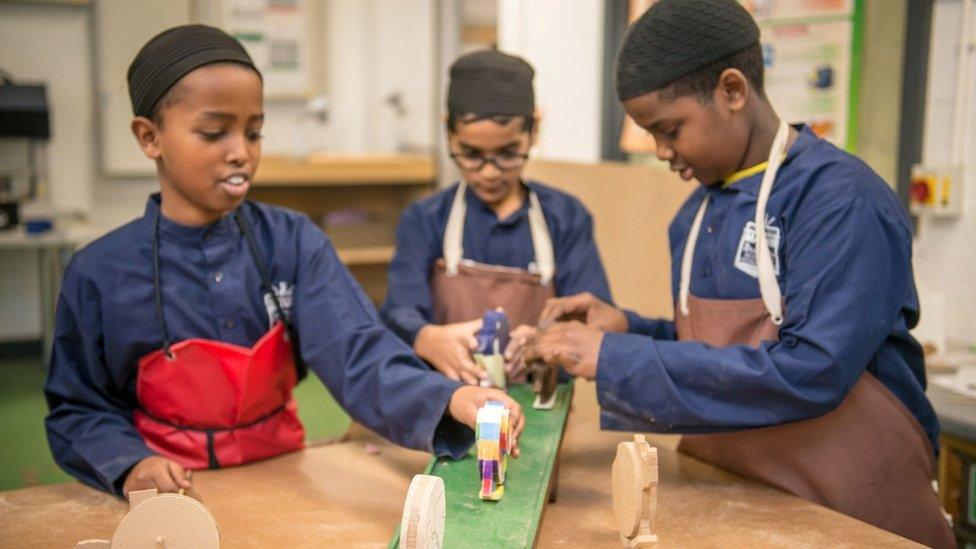
The number of Muslim state schools does not reflect the size of the population
Will there be a new wave of Muslim state schools opening?
Is the best way to guard against radicalisation to make sure Muslim pupils are in religious state schools that are robustly regulated?
When the government unveiled its plans for schools in England, the headlines were taken by the controversy over grammars.
But there was another shift in policy which would make it easier for an increase in faith-based free schools.
This was presented in the context of allowing more Catholic schools, with Prime Minister Theresa May commending them for high achievement often in areas of deprivation.
And, she said, "there is growing demand for them".
But expanding faith schools will not be limited to one religion or denomination.
And in terms of "growing demand", one of the biggest gaps must be for Muslim faith schools.
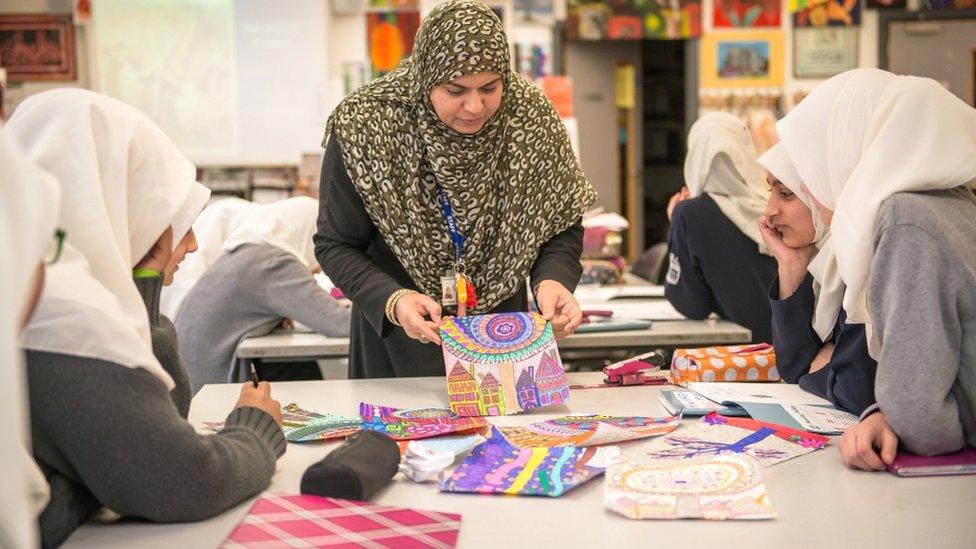
Will the push for more faith schools in the state system mean more Muslim schools?
There are more than 6,800 faith schools in the state school system - but only 28 of them are Muslim, with two more in the pipeline.
In terms of the Muslim population, estimated at 2.7 million and with a third aged 15 or under, the number of Muslim state schools is disproportionately small.
But the absence of Muslim schools in the state sector does not mean that there are not Muslim schools - it means most of them are low-cost private schools.
Even further away from public scrutiny are an unknown number of entirely unregulated, unregistered schools.
There have been repeated warnings from Ofsted over the past year about the risks posed by such illegal schools.
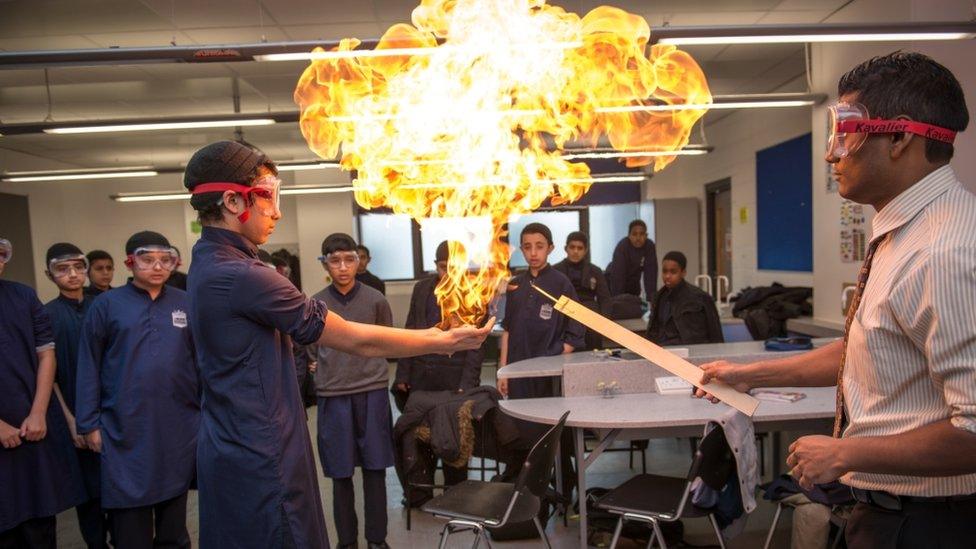
A science experiment at the Madani school in Leicester
Would such places exist if there were more Muslim schools in the state sector?
Farhan Adam is head of the Madani schools in Leicester, one for girls and one for boys, and he says that for every pupil getting a place, another four have to be turned away.
These are part of the state system and he is applying to open another two Muslim free schools, to meet unmet parental demand.
He is worried about where some Muslim pupils end up being taught, saying they could be in places "where there are safeguarding issues and questions about radicalisation and extremism".
There are also seem to be pupils entirely "missing from the system".
Mr Adam says Muslim state schools are able to provide a bridge between parents who want a religious ethos and the need for a good quality education in a place that is safe.
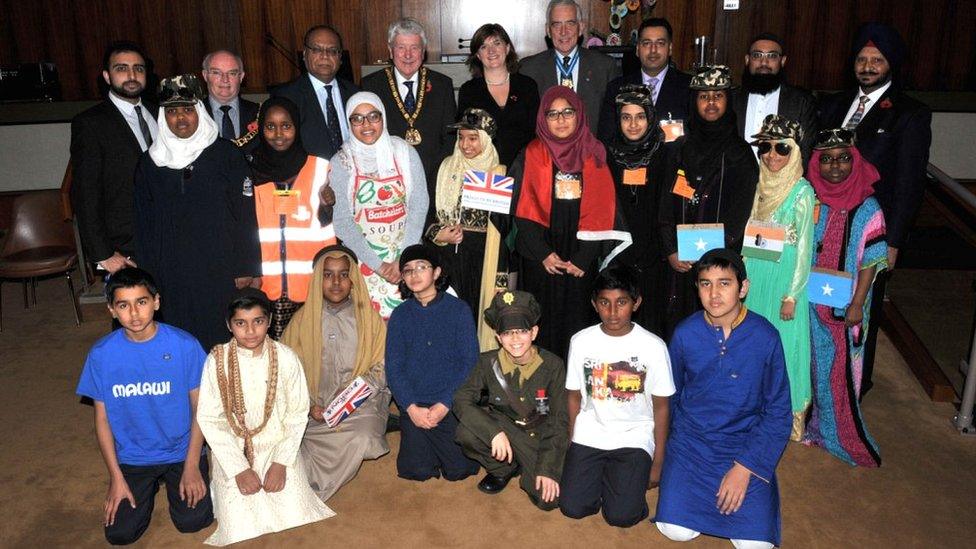
The former education secretary, Nicky Morgan, visited Madani school in Leicester
Within a state school, he says teachers can make sure that young people have a proper understanding of their religion and how it is compatible with living in a diverse, modern society.
The threat of radicalisation comes from young people going online by themselves and getting a "warped version", he says.
Ghulam Abbas, an education consultant and former Department for Education official, says there is a need for more Muslim state schools - but the quality is more important than the quantity.
He says that in the past, applications for Muslim free schools have been turned down because too much attention was paid to the religious aspect and not enough to the quality of education.
The lack of Muslim schools so far has been about a lack of expertise in the community in running successful schools, he says.
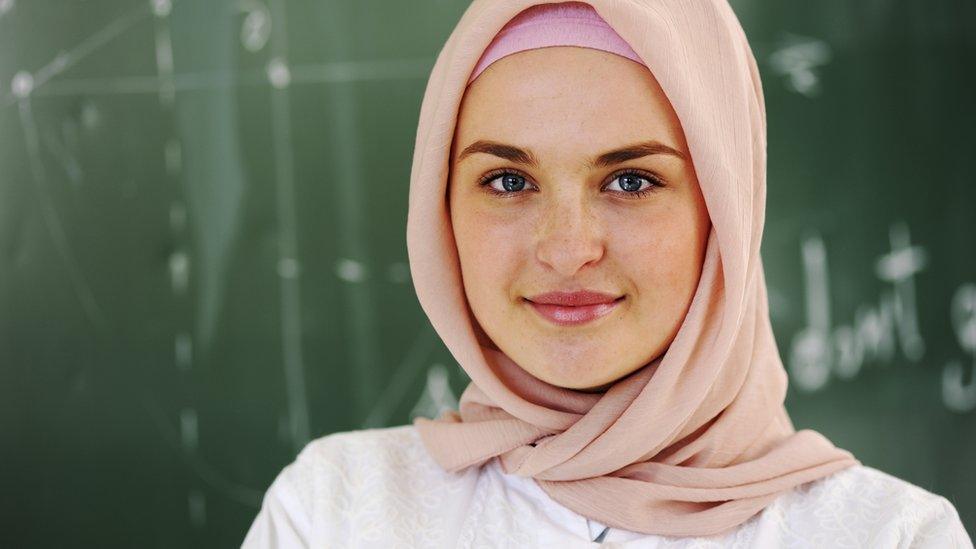
Is integration better served by incorporating religions or by a secular approach?
But he says a new generation of outstanding and outward looking Muslim state schools could be a positive answer to the problem of Muslim youngsters with a "poor understanding of their faith" and who are vulnerable to radicalisation.
The east London schoolgirls who headed off to Syria were not in faith schools and the schools caught up in the Trojan Horse claims did not have a religious affiliation.
But if ministers want to have more Muslim schools inside the fold of the state system, there will be accusations of segregation and cultural isolation.
"Opening up more Muslim faith schools will be divisive - risking further harm to integration by fuelling religious and ethnic segregation," says Stephen Evans of the National Secular Society.
"Schools paid for out of public money should be inclusive schools where all children are educated together, irrespective of their faith backgrounds."
If there are problems with independent Muslim schools, he says the answer is "to better regulate the independent sector, not to open up more Muslim faith schools in the state sector".
Mr Evans also says that even if Muslim parents had an option of a faith school, many would still prefer to send their children to a non-religious school.
It's also the case that some Muslim families choose to send their children to other types of faith school. There are Catholic schools where changing demographics mean that a majority of pupils are Muslim.
There is a big philosophical dividing point here. England's education system has traditionally had strong links with religious groups and been open to incorporating the religions of new arrivals. This is very unlike a system such as France, which has remained staunchly secular.
But which works for integration?
By international standards, measured by the OECD, England's schools are successful. In fact, they're very unusual in that the children of migrants are more likely to go to university than children of native parents.
The OECD has also measured how much the children of migrants feel as though they belong in the host country.
And the country with the lowest sense of "belonging" in their schools is among migrant families in France.